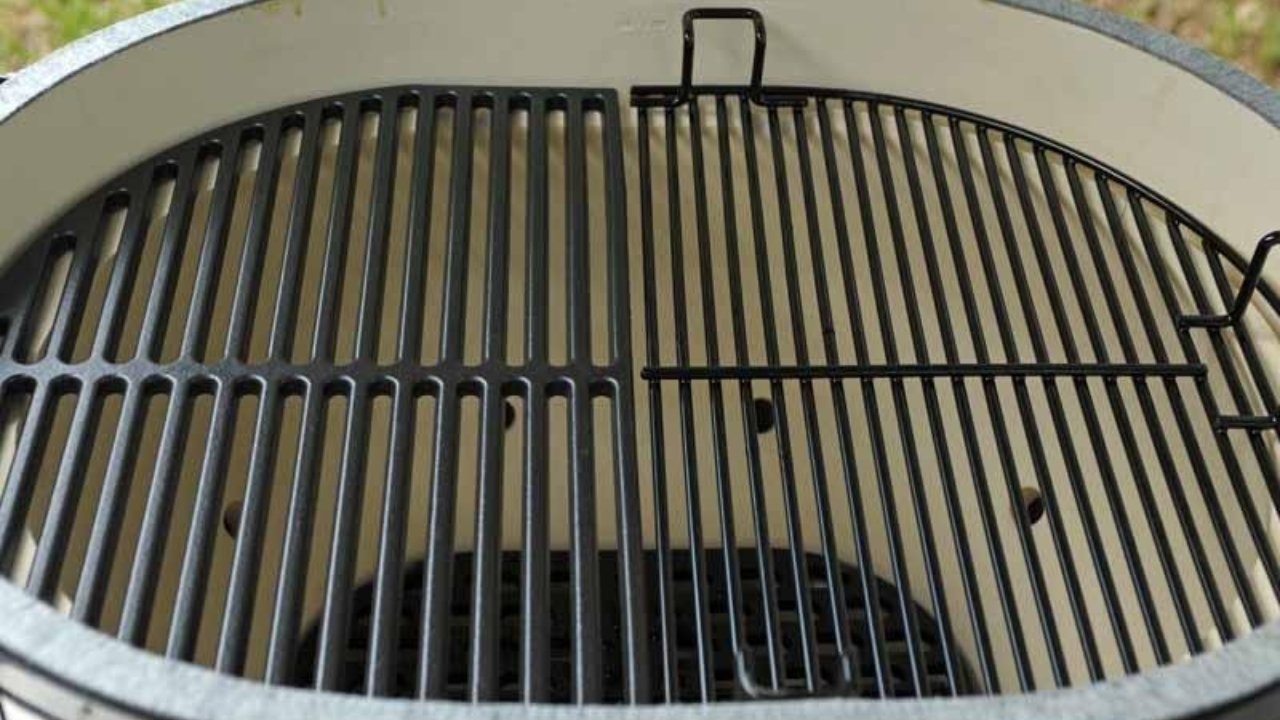What Are the Different Types of Grills?
Grills come in various materials and designs, each with unique characteristics. Choosing the right one depends on your cooking style, maintenance preference, and budget.
Stainless Steel Grills
Stainless steel grills are lightweight, easy to transport, and quick to heat. They’re ideal for those who value portability and convenience.
Types
They come in three main shapes: hexagonal, cast iron, or rod. Rod grills—composed of tubular or solid rods—are the most common. Hexagonal designs offer a smoother surface and improved cooking experience.
Maintenance
Regular cleaning is essential. Though they’re easy to clean, frequent use may lead to wear, rust, or food sticking.
Pros
-
Lightweight and portable
-
Heats quickly
-
Affordable
-
Corrosion-resistant
Cons
-
Surface degrades over time
-
Poor heat retention
-
Can cause food to stick with wear
Cast Iron Grills
Cast iron grills are heavier and provide better heat retention. They heat slowly but maintain even temperatures once hot.
Features
These grills often come with a matte or glossy enamel coating that protects against rust and reduces maintenance. They’re known for delivering even heat and perfect sear marks.
Maintenance
Requires frequent cleaning and occasional seasoning to avoid rust. With proper care, they are highly durable.
Pros
-
Excellent heat retention
-
Durable with proper care
-
Even cooking performance
-
Searing capability
Cons
-
Heavy and prone to rust
-
Requires regular maintenance
Enameled Grills
Enameled grills are made by coating stainless steel or cast iron with enamel, creating a nonstick and rust-resistant surface.

Features
While enamel prevents corrosion and offers some nonstick qualities, it may chip or flake during cleaning, compromising the grill’s performance.
Maintenance
Brush off food particles after use. Use baking soda or soap to remove burnt residue. Avoid harsh scrapers to prevent enamel damage.
Pros
-
Non-stick surface
-
Corrosion-resistant
-
Better heat retention than stainless steel
Cons
-
Enamel can chip or crack
-
Damaged enamel leads to rust
-
Requires gentle cleaning
Porcelain-Coated Grill Doors
These are made by spinning strands of steel into ropes and coating them with porcelain. They offer a beautiful finish and nonstick properties.
Maintenance
Use a brass-bristled brush when the grill is cool to avoid damaging the coating. Avoid scraping tools to prevent flaking and rust.
Pros
-
Non-stick and rust-resistant
-
Attractive appearance
-
Easy to clean
-
Durable when handled carefully
Cons
-
Poor heat retention
-
Cannot be seasoned
-
High maintenance
How to Choose the Best Grill?
The best grill depends on your cooking style, maintenance habits, and durability needs. Ask yourself the following questions before making a choice:
Do You Prefer to Cook Over Low or High Heat?
-
For low heat (e.g., vegetables or fish): Porcelain grills are ideal.
-
For high heat (e.g., steaks or burgers): Choose a cast iron grill for excellent heat retention.
How Long Do You Expect to Use Your Grill?
If durability is key, cast iron grills are ideal for longevity. However, stainless steel grills are low-maintenance and often come with long warranties.
Do You Like to Season Your Grill?
Avoid porcelain grills if you enjoy seasoning. The coating can chip or crack with repeated seasoning.
Do You Have the Time to Maintain the Grill?
-
If time is limited, choose stainless steel grills for their easy upkeep.
-
If you can dedicate time, cast iron and porcelain grills offer excellent cooking performance but require more care.
Can You Afford a More Expensive Option?
Investing in a durable grill can save money over time. High-quality cast iron or enameled grills may have a higher upfront cost but offer superior cooking performance and longevity.
Which Grill Is Best?
Each type has strengths and weaknesses:
-
Cast Iron Grills: Best for searing and heat retention. Ideal for thick meats but high maintenance.
-
Stainless Steel Grills: Easy to clean, corrosion-resistant, low maintenance.
-
Enameled Cast Iron Grills: Good corrosion resistance but prone to chipping.
-
Porcelain Grills: Beautiful and easy to clean, but poor heat retention and fragile coating.
Conclusion
Choosing the right grill requires evaluating your grilling style, frequency of use, and cleaning routine. Whether it’s cast iron for searing or stainless steel for easy maintenance, selecting a grill that matches your needs ensures a better, more enjoyable cooking experience.
